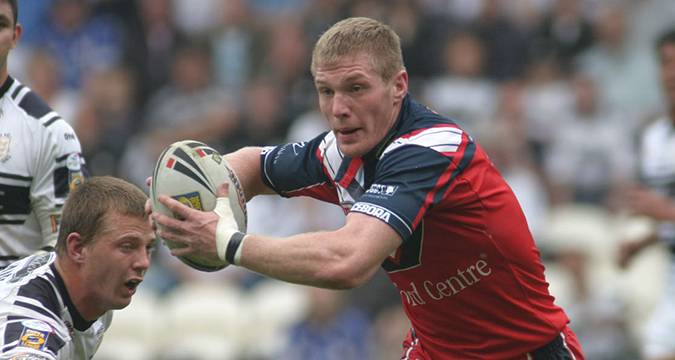 I WAS deeply saddened by the news at the weekend that former Salford captain Malcolm Alker had passed away at the age of 45.
Malcolm retired injured from playing in 2010 and for a brief time was an assistant coach to Shaun McRae at Salford, but sadly it didn't work out and he eventually left the club.
In 2012 he wrote his autobiography, ‘Th
I WAS deeply saddened by the news at the weekend that former Salford captain Malcolm Alker had passed away at the age of 45.
Malcolm retired injured from playing in 2010 and for a brief time was an assistant coach to Shaun McRae at Salford, but sadly it didn't work out and he eventually left the club.
In 2012 he wrote his autobiography, ‘Th Talking Rugby League: Former Salford captain Malcolm Alker a fine player taken far too early
 I WAS deeply saddened by the news at the weekend that former Salford captain Malcolm Alker had passed away at the age of 45.
Malcolm retired injured from playing in 2010 and for a brief time was an assistant coach to Shaun McRae at Salford, but sadly it didn't work out and he eventually left the club.
In 2012 he wrote his autobiography, ‘Th
I WAS deeply saddened by the news at the weekend that former Salford captain Malcolm Alker had passed away at the age of 45.
Malcolm retired injured from playing in 2010 and for a brief time was an assistant coach to Shaun McRae at Salford, but sadly it didn't work out and he eventually left the club.
In 2012 he wrote his autobiography, ‘Th 